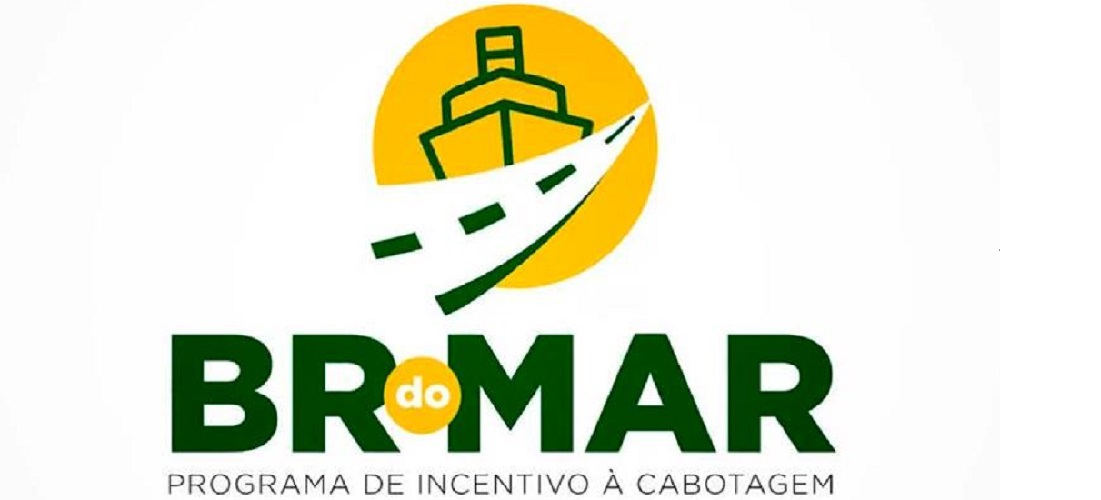
Brazil’s cabotage incentive program brings little gains to the port sector
Dec, 15, 2022 Posted by Gabriel MalheirosWeek 202250
Sanctioned in January 2022, Brazil’s Federal Law 14,301/2022, which institutes the cabotage incentive program BR do Mar, brought mild gains to the port sector, the main one being the extension of the Reporto tax, collected to modernize and expand port structures. However, for fiscal reasons, few companies reaped tangible benefits, and many have asked the government’s transition team to extend the incentive period.
“For us, BR do Mar mainly brought two things, one of them being really helpful and the other still pending verification of whether it will be beneficial. We won the right to collect Reporto for two years. We’ve gained it but have not used it, as the decision was valid for 2022 and 2023. In 2022, the Federal Revenue service did not allow it because the fee collection wasn’t included in the previous year’s fiscal plan. A handful of companies went to the courts and won the right to collect it,” stressed the president of the Private Port Terminals Association (ATP), Murillo Barbosa.
According to the executive, for this reason, port operator groups contacted the team of president-elect Lula da Silva last week. They demanded the extension of Reporto for another five years from the end of 2023.
The other point raised by the president of ATP was the possibility of port facilities using resources from the Merchant Marine Fund to invest in port infrastructure. These funds can be used, among other things, for financing dredging works. “Obviously, this will be another credit line for anyone who wants it, being another advantage brought about by the BR do Mar cabotage incentive program.”
Additional time
According to Sérgio Aquino, president of the National Port Operations Federation (Fenop), it is too early to predict the new cabotage law’s impacts accurately. “Few months have passed with few sizeable operations. Investing in vessels demands a lot of capital. Besides, international companies are willing to work on this segment, but they still need to regularize. Thus, there is still insufficient numerical evidence to prove an increase in cabotage operations.”
Still, as per Aquino, the expectations are positive. “We do expect an increase in the concentration and distribution of operations, especially in terms of container movement. The Port of Santos will likely grow as a container hub for Brazil and Mercosur.”
The federation’s president also notes that there are groups supporting a revision to the cabotage law that would give preference to vessels manufactured in Brazil. “We believe that increasing cabotage operations is important for port activity. The more waterway and rail transport there is, the better for logistics, with an increased balance to the transportation matrix, cost reduction, and environmental reflexes.”
Infrastructure
According to the Ministry of Infrastructure, a proposal suggesting issuing a decree altering the cabotage incentive program is currently being reviewed by Brazil’s Civil Office. “However, some provisions can be added and do not depend on further regulation. Federal Law 14,301/2022, for example, guarantees the chartering of bareboat vessels since January of this year.”
New bill
The Senate will discuss a new bill to encourage cabotage navigation in the country. Bill 2,528/2022 equates purchasing fuel for a vessel to an export operation. The law project was authored by Senator Guaracy Silveira and was introduced to the plenary at the end of September. However, no decisions have been taken as of yet.
The measure is designed to be applicable to vessel construction, conservation, modernization, and repair as well. To that end, the project amends Law 9,493/1997, which, among other things, established the equalization of fuel prices charged by long-distance shipping companies and cabotage shipping companies.
In practice, however, the senator claims that the legislation is not being followed. The main reason is still the ICMS state excise rate, levied only on fuel consumed on the national territory. Because the sale of bunker oil to long-haul shipping companies is considered an export activity, it is exempt from state taxation.
“Therefore, to ensure this isonomic treatment provided for in Law 9,432, this legislative proposal includes fuel purchases in the operations of vessels registered and pre-registered in the Brazilian Special Registry (REB) that operate in cabotage, considering for all legal and fiscal purposes an export transaction,” justified the congressman.
How it works
To enjoy such a benefit, vessels need to be pre-registered or registered at the REB, created by Federal Law 9,432/1997, with an incentive to the Brazilian Merchant Fleet.
“Cabotage can be up to 30% cheaper than road transportation. Furthermore, it is a safer mode of transportation, with lesser rates of cargo theft and loss, in addition to having a greater capacity to move larger volumes of cargo and a lower environmental impact,” said the parliamentarian.
Source: A Tribuna
To read the full original piece, please follow the link: https://www.atribuna.com.br/noticias/portomar/programa-de-incentivo-a-cabotagem-traz-poucos-ganhos-ao-setor-portuario
-
Ports and Terminals
Jul, 14, 2023
0
Tecon Imbituba to receive international line service after four years
-
Other Logistics
Oct, 02, 2023
0
Brazil closer to launching BRAEXP export platform
-
Trade Regulations
May, 11, 2022
0
Brazil reduces steel rebar and a few food products import tariffs
-
Economy
May, 24, 2019
0
Argentina launches plan to triple exports



